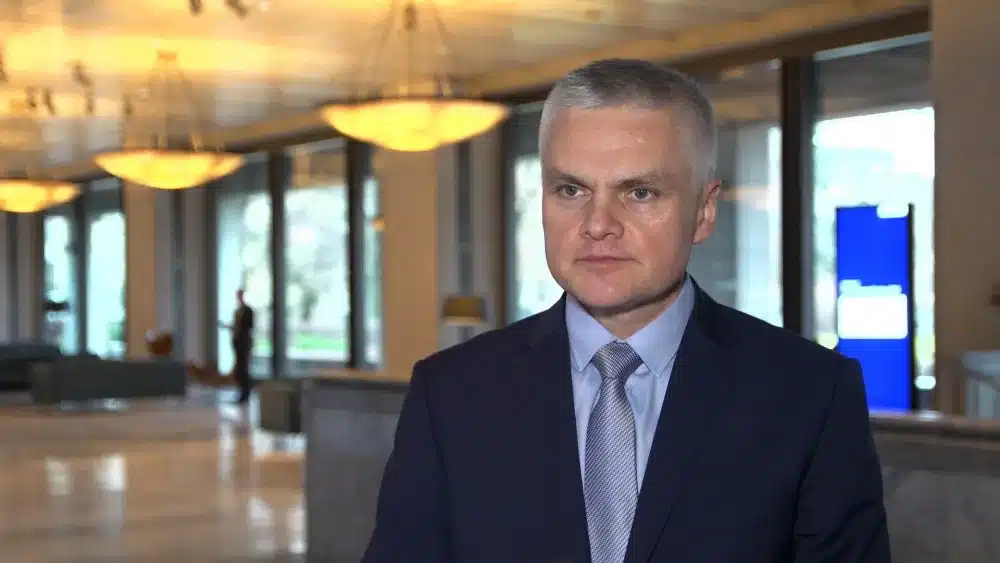The risk of escalating geopolitical tensions in Ukraine, the Middle East, and Taiwan, coupled with uncertainty surrounding the policies of the incoming U.S. President Donald Trump—who has proposed tariffs on goods from China, Canada, Mexico, and the European Union—and Poland’s rapidly growing public debt are among the most pressing concerns for economists. In contrast, inflation, which previously dominated discussions, has now receded to a less critical position.
“December surveys conducted by the European Financial Congress (EFC) revealed no new threats to Poland’s economy that were not already known,” said Marcin Mrowiec, macroeconomic coordinator at EFC, in an interview with Newseria Biznes. “Inflation, which topped the risk rankings a year or two ago, has now dropped to a much lower position. It seems that we have high inflation under control, though this doesn’t mean it will be very low. Demographic factors and deglobalization suggest that inflationary pressures will remain stronger than during the golden years of 5–10 years ago, when inflation was very low or even negative.”
Key Findings from the European Financial Congress
The EFC, held semi-annually in June and December, publishes a report titled Macroeconomic Challenges and Forecasts for Poland, based on surveys of dozens of economists. In December 2022, the top-ranked risk identified was “entrenched high inflation and interest rates, significantly hampering growth (stagflation scenario).” At the time, 97% of respondents flagged this as the most significant threat. Inflation was nearing 18% (17.9% in October 2022 and 17.5% in November), with a peak expected in February 2023 at 18.4%.
Two years later, inflation had dropped to the last spot among economic risks, ranked 11th, with only 39% probability assigned to it by experts. Additionally, only 64% of respondents even mentioned inflation as a concern, the lowest level of responses for any listed risk.
Geopolitical Risks Dominate
“Geopolitical risks remain the greatest threat to economic conditions in Poland and the stability of the złoty. This includes the ongoing war in Ukraine, which could escalate further, with very negative consequences for our economy,” Mrowiec explained.
Beyond Ukraine, other global hotspots, such as tensions in the Middle East or over Taiwan, pose risks that could disrupt global energy prices or trigger a downturn in international markets.
In December 2024, 29 experts from the EFC identified geopolitical conflicts—not only in Ukraine but also involving Taiwan and the Middle East—as the most significant risks to the economy. Other major concerns included weakening economic conditions in key global economies, declining competitiveness and investment appeal in Poland, and unfavorable demographic trends.
Public Debt and Fiscal Policy
Poland’s public debt also emerged as a critical concern. The probability of risks related to deteriorating public finances, compounded by expansionary fiscal policies, surged from 44.3% in June 2024 to 64.1% in December 2024, making it the most probable risk according to the experts. The Polish government’s 2025 budget includes a record-high deficit of 289 billion złotys, or 7.3% of GDP, further exacerbating concerns.
Uncertainty Surrounding U.S. Policies
The incoming U.S. administration under Donald Trump adds another layer of uncertainty. “President-elect Trump’s campaign promises on economic and trade policies, particularly regarding import tariffs and U.S.-China relations, were quite radical. While they seem to have softened post-election, the real test will come in January when he takes office and starts implementing these policies,” Mrowiec noted.
Trump’s proposed tariffs on European goods could have significant ripple effects, particularly on Germany’s automotive sector, which is closely linked to Polish suppliers. “If the German automotive industry were to face further challenges, Polish businesses would also feel the impact,” Mrowiec warned.
Outlook for 2025
With geopolitical tensions, public debt concerns, and the uncertainty of U.S. policies looming large, Poland’s economic prospects for 2025 are shrouded in uncertainty. While inflation has receded as a primary concern, other risks—both domestic and international—pose significant challenges that will require careful navigation in the coming year.
